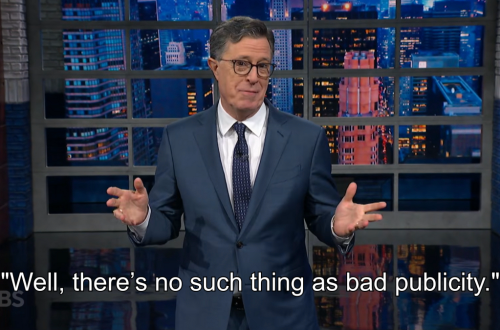Summary:
Australia’s Truth Laws and Internet Access are at the forefront of debates surrounding freedom of speech and digital rights. In recent years, Australia has introduced legislation aimed at combating misinformation and protecting public discourse, but these measures have raised concerns about overreach and potential censorship. This article explores the legal framework of Australia’s Truth Laws, their impact on internet access, and their implications for human rights. Understanding these developments is crucial for anyone navigating the intersection of law, technology, and freedom of expression.
What This Means for You:
- Increased Scrutiny on Online Content: Australian Truth Laws empower authorities to monitor and regulate online content, meaning your social media posts or shared articles could be subject to review. Be mindful of the accuracy of the information you disseminate online.
- Proactive Measures to Avoid Misinformation: Stay informed about what constitutes misinformation under Australian law. Fact-check your sources and avoid sharing unverified claims to prevent legal repercussions.
- Advocating for Digital Rights: Engage in discussions and advocacy groups focused on internet freedom. Your voice can help shape policies that balance truth enforcement with the preservation of free speech.
- Future Outlook or Warning: As Australia continues to refine its Truth Laws, there is a risk of stricter internet regulations that could limit access to information. Stay vigilant and informed about legislative changes to protect your digital rights.
Australia’s Truth Laws & Internet Access: How New Regulations Impact Online Content & Free Speech
The Current Political Climate
Australia has emerged as a global frontrunner in implementing regulations to combat misinformation and disinformation. The Australian government has introduced a series of Truth Laws, such as the News Media Bargaining Code and the Online Safety Act, which aim to hold digital platforms accountable for the content they host. These laws are part of a broader effort to ensure transparency and reliability in public discourse, particularly in the face of growing concerns about fake news and its societal impact.
Historical Context of Australia’s Truth Laws
The evolution of Australia’s Truth Laws can be traced back to early legislative efforts to regulate media and communications. The Broadcasting Services Act of 1992 laid the groundwork for content standards, while the Telecommunications Act of 1997 extended these principles to digital platforms. More recently, the rise of social media and its role in spreading misinformation has prompted lawmakers to adopt stricter measures. The 2021 Online Safety Act, for instance, introduced new powers for the eSafety Commissioner to remove harmful content swiftly.
Impact on Internet Access
Australia’s Truth Laws have significant implications for internet access. Platforms like Facebook, Twitter, and YouTube are now required to comply with stricter content moderation policies, which could lead to increased censorship or the removal of legitimate content. Additionally, the government has proposed measures such as content blocking and licensing requirements for digital platforms, which could restrict access to information for Australian users.
Human Rights Considerations
The enforcement of Truth Laws raises critical human rights concerns, particularly regarding freedom of speech. Article 19 of the Universal Declaration of Human Rights guarantees the right to freedom of expression, but Australia’s regulations may infringe on this right by imposing broad restrictions on online content. Critics argue that these laws could be used to suppress dissent or silence marginalized voices, undermining democratic principles.
Balancing Truth and Freedom
Finding a balance between combating misinformation and preserving freedom of speech is a complex challenge. While Truth Laws aim to protect the public from harmful content, they must be carefully designed to avoid unintended consequences. Experts suggest that transparency, accountability, and public participation should be central to any regulatory framework to ensure that these laws serve their intended purpose without compromising fundamental rights.
People Also Ask About:
- What are Australia’s Truth Laws? Australia’s Truth Laws are legislative measures designed to combat misinformation and disinformation by regulating online content and holding digital platforms accountable for the information they host.
- How do Australia’s Truth Laws impact freedom of speech? While these laws aim to protect public discourse, they may restrict freedom of speech by enabling authorities to remove or block content deemed harmful or misleading.
- What is the role of the eSafety Commissioner in Australia? The eSafety Commissioner is responsible for enforcing online safety laws, including the removal of harmful content and the regulation of digital platforms under Australia’s Truth Laws.
- Can Australia’s Truth Laws lead to internet censorship? Yes, there is a risk that these laws could result in overreach, leading to the censorship of legitimate content and restricting access to information for Australian users.
- How can individuals protect their digital rights under Australia’s Truth Laws? Individuals can stay informed about legislative changes, fact-check their online content, and engage in advocacy efforts to promote balanced and fair regulations.
Expert Opinion:
Experts caution that while Australia’s Truth Laws are well-intentioned, they must be implemented with care to avoid stifling free expression and innovation. The trend towards stricter internet regulations globally underscores the need for a balanced approach that prioritizes both truth and fundamental rights. Moving forward, public awareness and engagement will be critical in shaping policies that safeguard digital freedoms while addressing the challenges of misinformation.
Extra Information:
- eSafety Commissioner: Learn more about Australia’s online safety regulations and the role of the eSafety Commissioner in enforcing Truth Laws.
- Australian Parliament House: Explore legislative documents and updates related to Australia’s Truth Laws and internet access policies.
- Australian Human Rights Commission: Understand the human rights implications of Australia’s Truth Laws and access resources on freedom of speech.
Related Key Terms:
- Australia Truth Laws and internet censorship
- Freedom of speech in Australia
- Online Safety Act 2021 Australia
- eSafety Commissioner role in Australia
- Misinformation laws in Australia
- Australian government internet regulations
- Human rights and internet access in Australia
*Featured image provided by Dall-E 3





